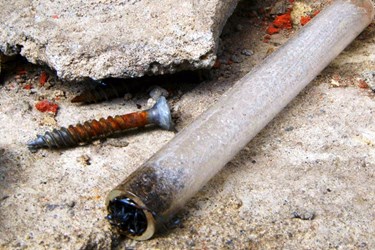Do Drugs In Water Warrant Boost In Tech Spending?
Wastewater plants must invest in better treatment technology to prevent painkillers and cocaine from entering the water supply, according to a leading researcher.
Viviane Yargeau, who has studied the issue extensively, called for increased spending on wastewater tech.
“There’s no evidence that trace amounts of drugs in our water poses a health risk, Yargeau said, admitting that even she drinks tap water. However, she still advocates for improved wastewater treatment to reduce or eliminate any contamination,” Metro reported.
“We need to do a better job treating our water,” Yargeau said. “The technologies do exist, but the issue is investing money to build additional treatment centres and hire the staff to operate them.”
The water supply in Ontario contains traces of cocaine and painkillers. As a result, “fish in Toronto may have a cocaine problem,” Metro reported.
“Researchers at McGill University have discovered traces of prescription and illicit drugs — including cocaine and oxycodone — in Ontario wastewater and in the surface waters of the Grand River watershed,” the report said.
But the impact may extend far beyond that. “The Grand River flows through Kitchener-Waterloo, but the study’s lead author, Yargeau, is confident similar drugs would be found in rivers across the province, including the Don or the Humber,” according to the report.
Yargeau explained why this research is significant.
“We don’t have much information about the toxicity or effect of these illicit drugs on fish, for example,” she told Metro. “There’s a possibility that the fish could be affected. Their behavior could be different and their survival rates could be affected.”
“It’s not just a problem for fish. The study also found traces of illicit drugs in drinking water,” the report said.
Studies have found traces of cocaine indicators in Britain’s water system, as well. "In a study to assess the dangers from pharmaceutical compounds appearing in the water we drink, scientists discovered traces of [a cocaine-related compound] after it had gone through intensive purification treatments," The Independent reported last year.
The U.S. also contends with drugs in the water supply.
Water Online previously reported: “It has long been known that there are trace amounts of PPCPs (pharmaceutical and personal care products) that escape our wastewater treatment plants and end up in waterways, including drinking water sources… Though unregulated, PPCPs are on the EPA’s radar via the Third Contaminant Candidate List (CCL3) and the Unregulated Contaminant Monitoring Rule (UCMR) — precursors to possible regulatory action.”
Cocaine use can lead to heart attacks, strokes and sudden death, according to the U.S. National Institute on Drug Abuse.
It’s not the first time questionable substances were found in Ontario’s water supply. Contamination of drinking water by pharmaceuticals has been a growing concern in Canada for years.
Health Canada, the nation's public health department, funded a study on this issue. It found "record-breaking levels of three pharmaceuticals in river water in southwestern Ontario," CBC News reported last year.
For similar stories, visit Water Online’s Source Water Contamination Solutions Center.
Image credit: "TAKE CARE KID!," Mark Falardeau © 2012, used under an AttributionShareAlike 2.0 Generic license: https://creativecommons.org/licenses/bysa/2.0/
Copyright © 1996 - 2015, VertMarkets, Inc. All rights reserved. To subscribe or visit go to: http://www.wateronline.com
http://www.wateronline.com/doc/do-drugs-in-water-warrant-boost-to-tech-spending-0001

